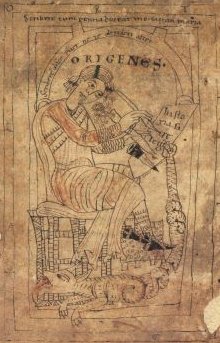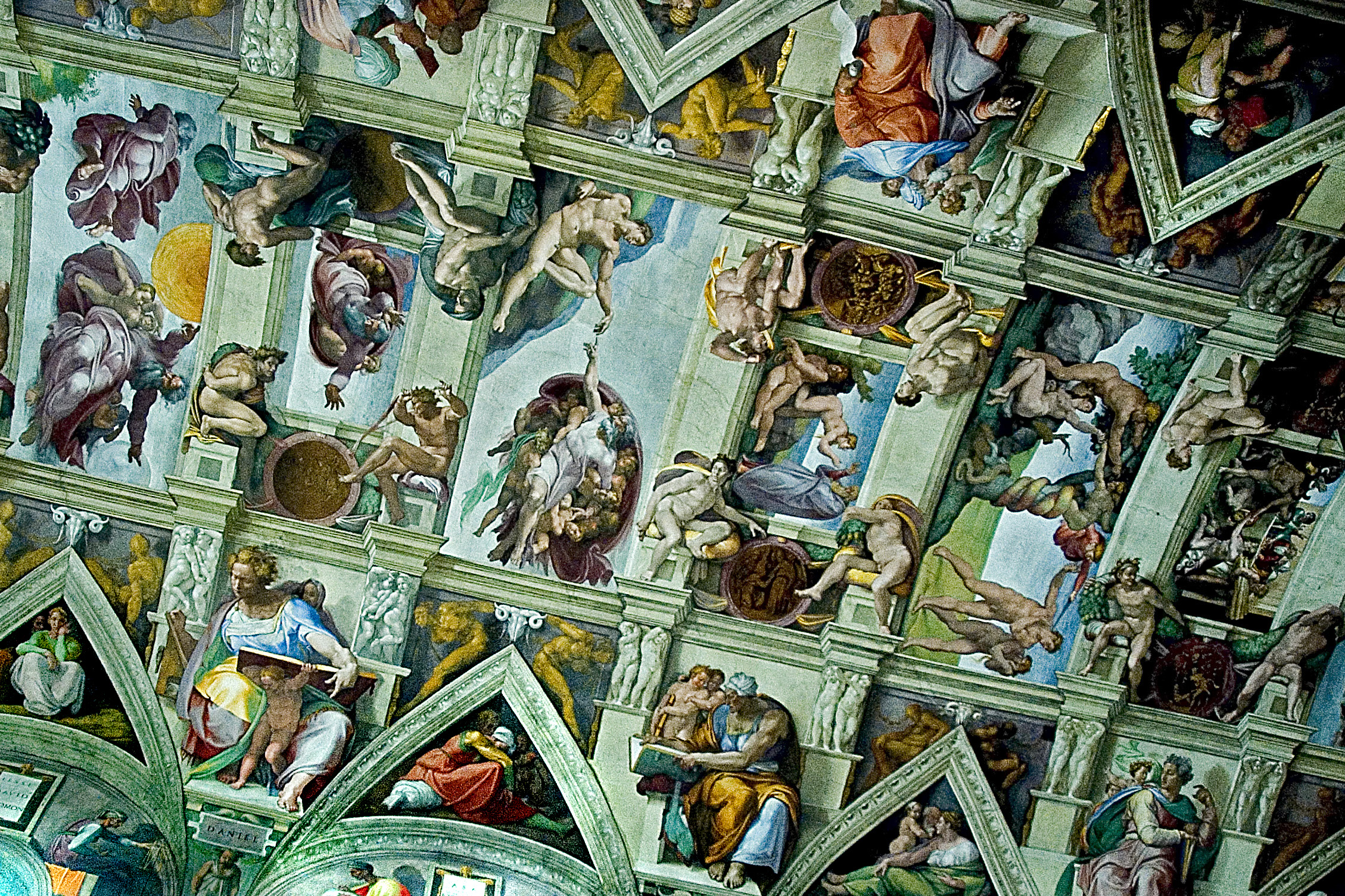 Origen of Alexandria (circa 184 – 254 A.D.) is an Ante-Nicene Church Father, and arguably the most scholarly man in the early Church between Paul and Augustine. However, Origen was on-and-off the Church's reading list for what became to be known as Origenisms or his allegorical methods that produced some possibly heterodox doctrines (depending how you read them), and that were certainly read in a heretical way by his later followers known as the Origenists. Origen's name is not to be confused with Origin (which means beginning) because Origen actually means "son of horus" (Ὠριγένης / Ōrigénēs i.e. Horis Genes), and he wrote many famous books, but his On First Principles is usually listed as the first Systematic Theology (or a proto-Systematic Theology). There were many Enchridion's such as Augustine's, however, it is important to remember how early Origen lived and how many dogmas we take for granted like the Trinity and Christology were not universally understood until centuries after Origen died. Philo of Alexandria was a Hellenized Jew, and Clement of Alexandria (Origen's teacher) had similar syncretisms but like the genius of Origen.
Origen of Alexandria (circa 184 – 254 A.D.) is an Ante-Nicene Church Father, and arguably the most scholarly man in the early Church between Paul and Augustine. However, Origen was on-and-off the Church's reading list for what became to be known as Origenisms or his allegorical methods that produced some possibly heterodox doctrines (depending how you read them), and that were certainly read in a heretical way by his later followers known as the Origenists. Origen's name is not to be confused with Origin (which means beginning) because Origen actually means "son of horus" (Ὠριγένης / Ōrigénēs i.e. Horis Genes), and he wrote many famous books, but his On First Principles is usually listed as the first Systematic Theology (or a proto-Systematic Theology). There were many Enchridion's such as Augustine's, however, it is important to remember how early Origen lived and how many dogmas we take for granted like the Trinity and Christology were not universally understood until centuries after Origen died. Philo of Alexandria was a Hellenized Jew, and Clement of Alexandria (Origen's teacher) had similar syncretisms but like the genius of Origen.
Alexandria had it's own form of Christology, that defined the Human Nature in the Hypostatic Union to be a generic human nature, and this was in contrast (although not incompatible) with the Antiochene Christology that define's Christ's Human nature as a specific human being. (I'm currently siding with the Antiochene after the influence of Jurgen Moltman's Theology of Hope because it places Christ Jesus in history as a man of history in expectation of the eschaton, where the Alexandrian is too Hellenized and rationalized by Platonic Forms and the realm of the forms that man becomes abstracted from Human history.)
 I came across a common allegory that was used to explain how Jesus Christ's human nature interacted with his divine nature. It's part of the anhypostatis vs. enhypostatis debates. The allegory goes that iron in the fire takes on the properties of the flame such as warmth, glow, heat, etc. and yet the iron remains iron. This has been used many times and in many ways, so the following is an extended quotation by Origen on this matter,
I came across a common allegory that was used to explain how Jesus Christ's human nature interacted with his divine nature. It's part of the anhypostatis vs. enhypostatis debates. The allegory goes that iron in the fire takes on the properties of the flame such as warmth, glow, heat, etc. and yet the iron remains iron. This has been used many times and in many ways, so the following is an extended quotation by Origen on this matter,
Origen, On First Principles Book II Section 6. To explain the matter more fully, it will not appear absurd to make use of an illustration, although on a subject of so much difficulty it is not easy to obtain suitable illustrations. However, if we may speak without offence, the metal iron is capable of cold and heat. If, then, a mass of iron be kept constantly in the fire, receiving the heat through all its pores and veins, and the fire being continuous and the iron never removed from it, it become wholly converted into the latter; could we at all say of this, which is by nature a mass of iron, that when placed in the fire, and incessantly burning, it was at any time capable of admitting cold? On the contrary, because it is more consistent with truth, do we not rather say, what we often see happening in furnaces, that it has become wholly fire, seeing nothing but fire is visible in it? And if any one were to attempt to touch or handle it, he would experience the action not of iron, but of fire. In this way, then, that soul which, like an iron in the fire, has been perpetually placed in the Word, and perpetually in the Wisdom, and perpetually in God, is God in all that it does, feels, and understands, and therefore can be called neither convertible nor mutable, inasmuch as, being incessantly heated, it possessed immutability from its union with the Word of God. To all the saints, finally, some warmth from the Word of God must be supposed to have passed; and in this soul the divine fire itself must be believed to have rested, from which some warmth may have passed to others. Lastly, the expression, “God, thy God, anointed thee with the oil of gladness above thy fellows,” shows that that soul is anointed in one way with the oil of gladness, i.e., with the word of God and wisdom; and his fellows, i.e., the holy prophets and apostles, in another. For they are said to have “run in the odour of his ointments;” and that soul was the vessel which contained that very ointment of whose fragrance all the worthy prophets and apostles were made partakers. As, then, the substance of an ointment is one thing and its odour another, so also Christ is one thing and His fellows another. And as the vessel itself, which contains the substance of the ointment, can by no means admit any foul smell; whereas it is possible that those who enjoy its odour may, if they remove a little way from its fragrance, receive any foul odour which comes upon them: so, in the same way, was it impossible that Christ, being as it were the vessel itself, in which was the substance of the ointment, should receive an odour of an opposite kind, while they who are His “fellows” will be partakers and receivers of His odour, in proportion to their nearness to the vessel.
Related: anhypostasis, Ante-Nicene Fathers, Antiochene Christology, christology, Church Father, Clement of Alexandria, Divine Nature, Enhypostatsis, Fire, Hellenized Jew, Human Nature, Hypostatic Union, Iron, Nicea, On First Principles, Origen, Origen of Alexandria, Philo of Alexandria, Son of Horus



October 24th, 2017 - 07:53
Ante Nicene not Anti Nicene.
October 24th, 2017 - 09:25
Good catch! I should hire you as my editor. One letter makes a big difference!